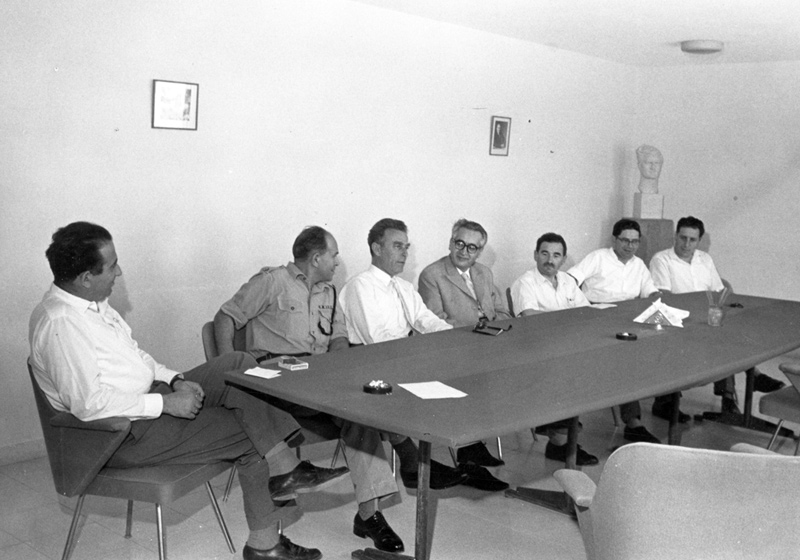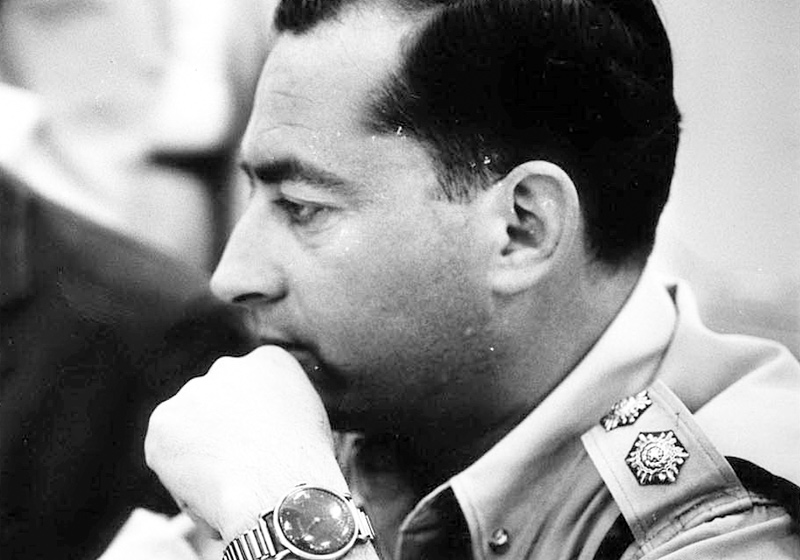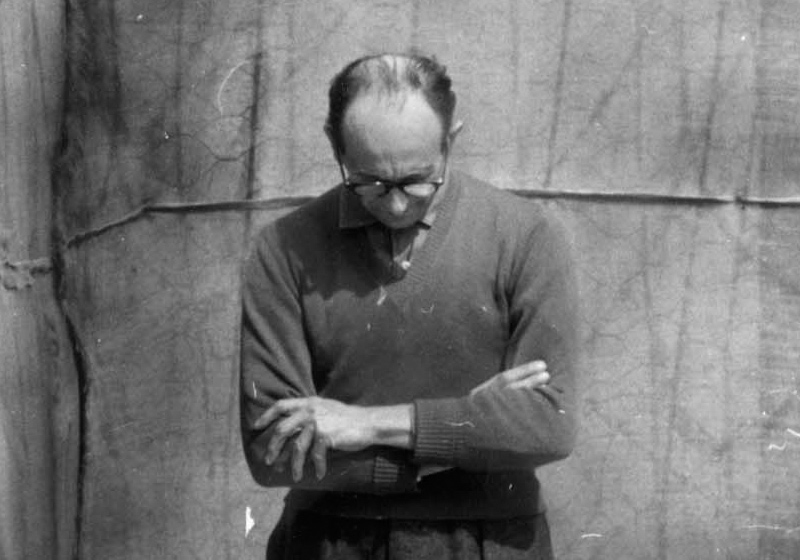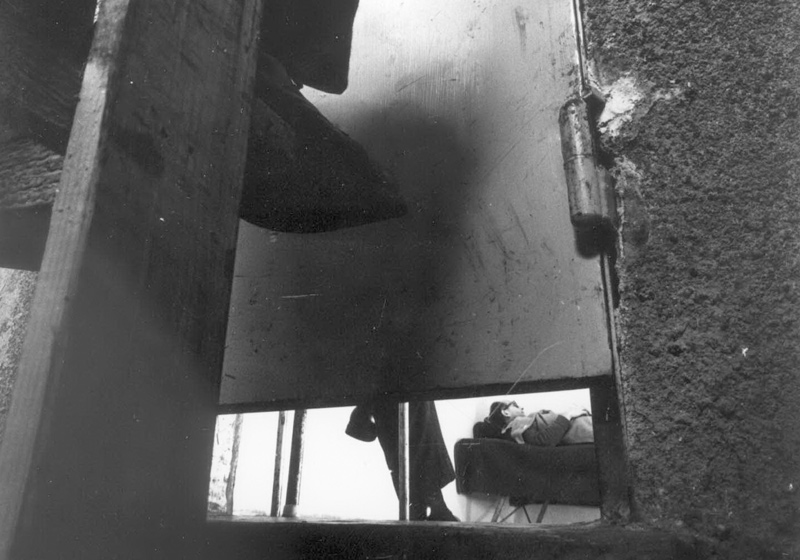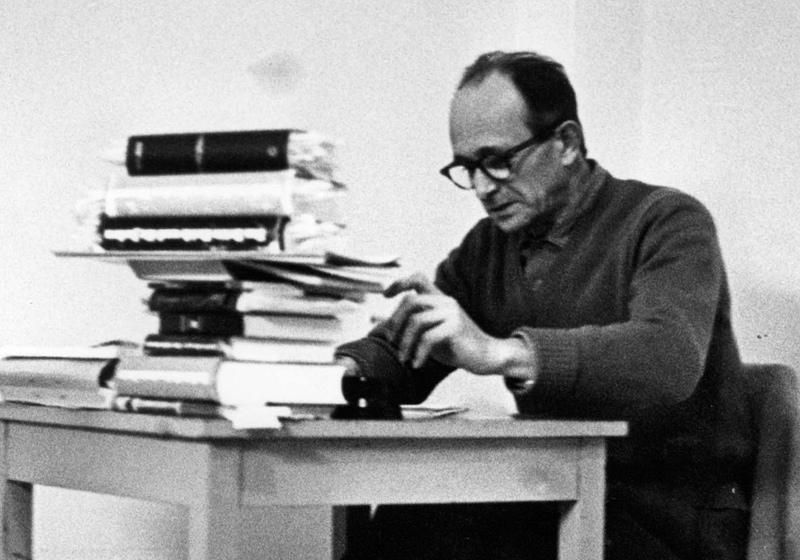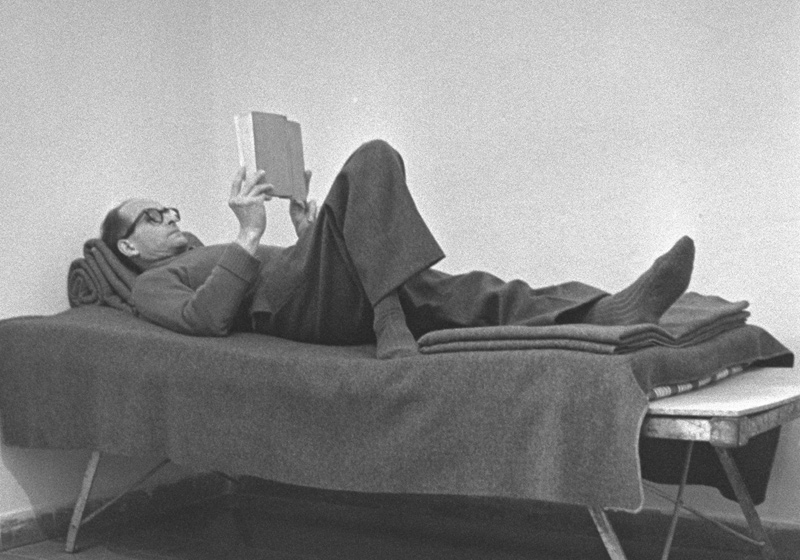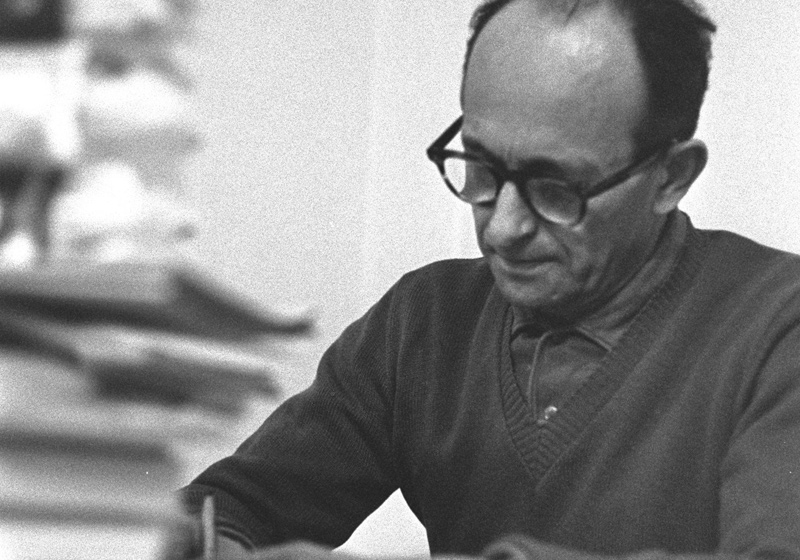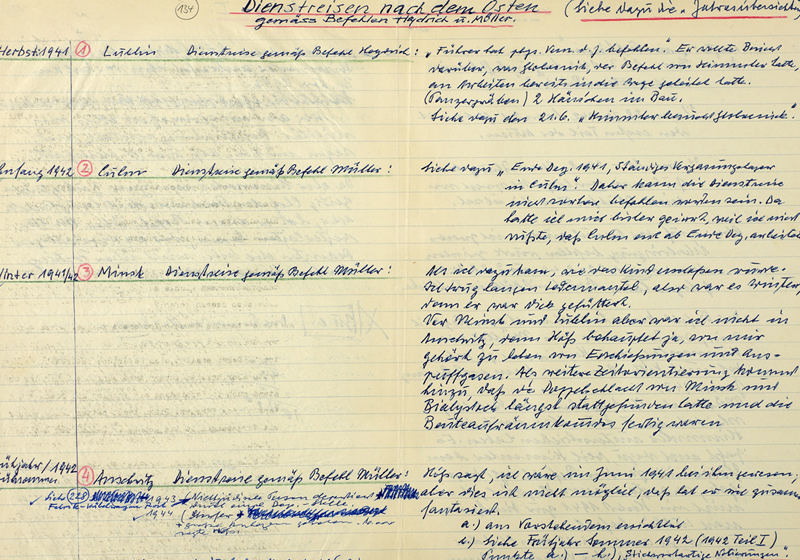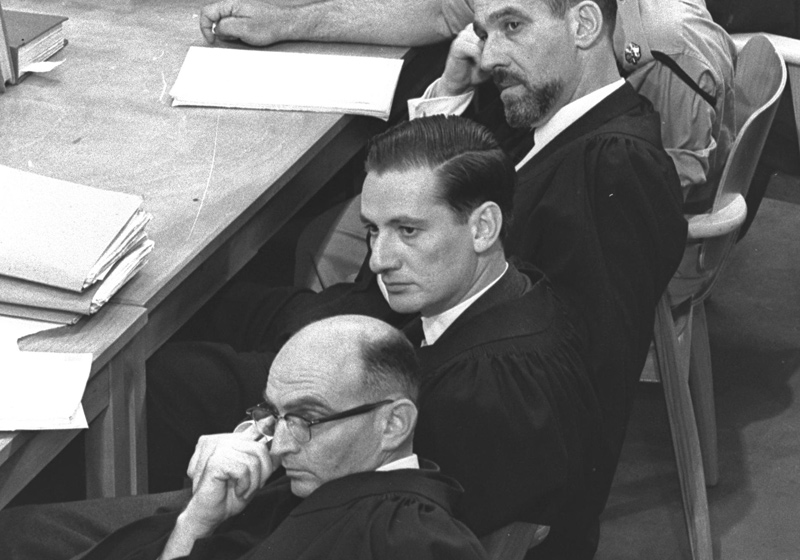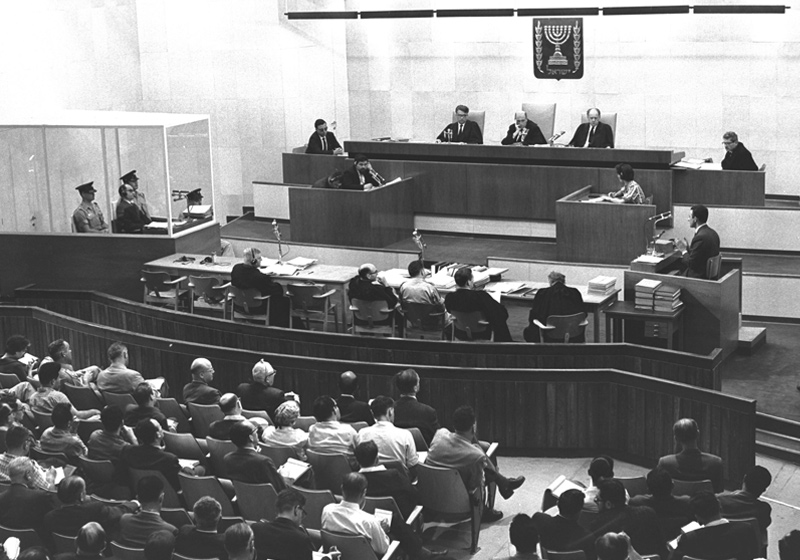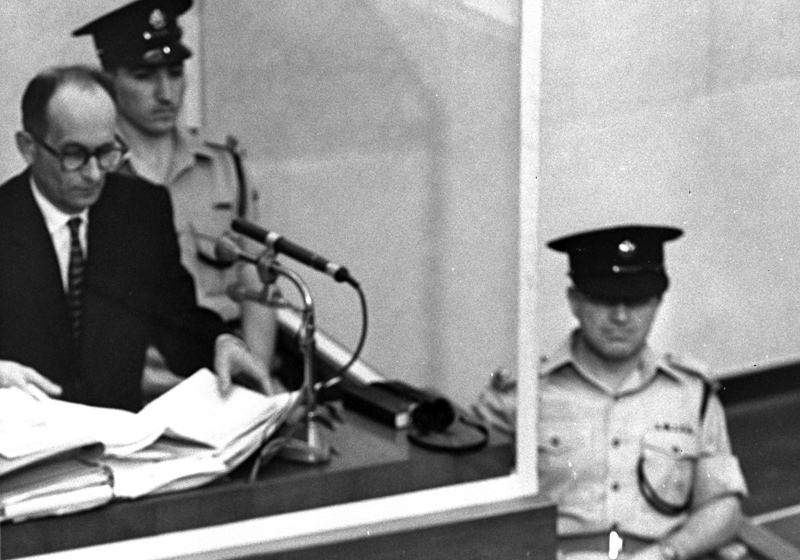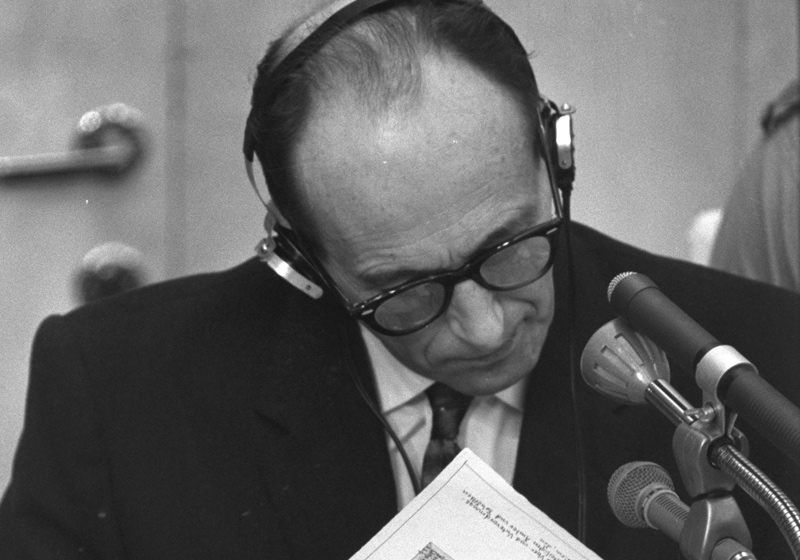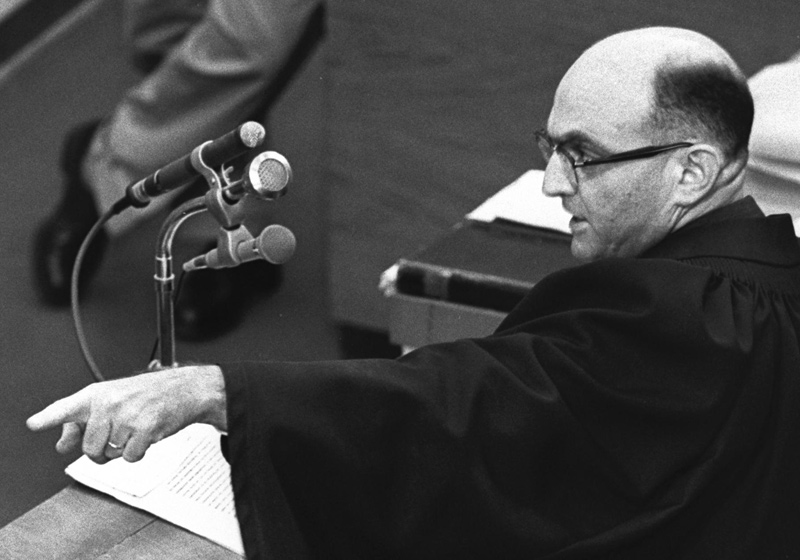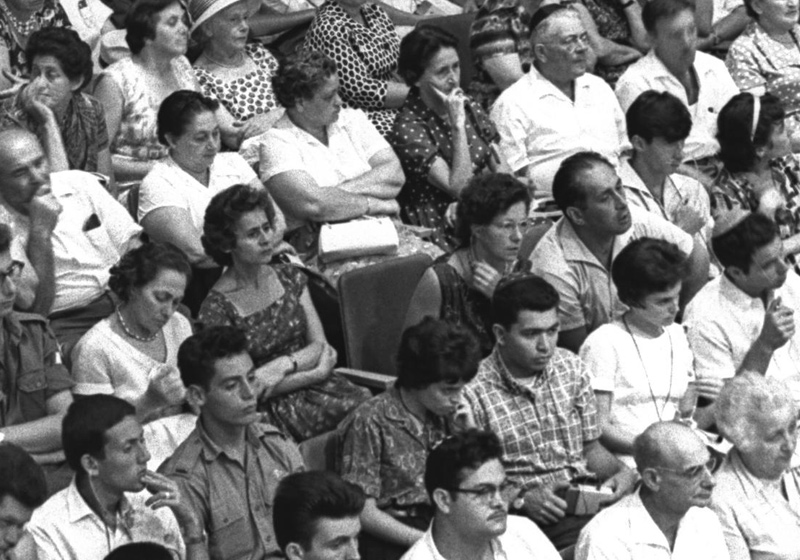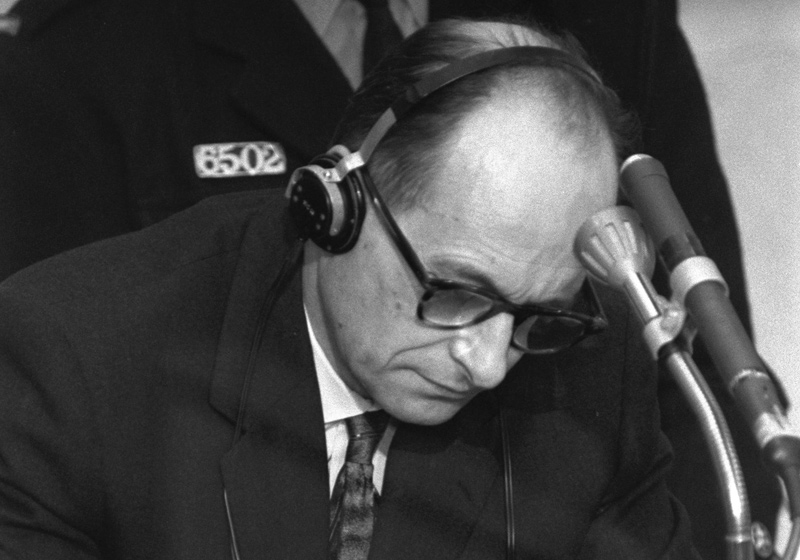The Eichmann Trial
"With Me Here Are Six Million Accusers"
Eichmann's Trial in Jerusalem
Preparing for Trial
The first session of the District Court on criminal case 40/61 was held on April 11, 1961, at Jerusalem's "Bet Ha'am." The trial terminated on December 15, 1961 with the reading of the verdict, whereby Eichmann found guilty on most of the articles of the indictment, was sentenced to death.
The commencement of the trial was preceded by long months of punctilious preparation. The Israeli police set up a special unit, "Bureau 06," for the purpose of assembling the relevant documents; selecting witnesses and preparing them for their testimony; setting out the prosecution line; and discussing various legal issues. 1,600 documents were selected, most of them bearing Eichmann's signature. Likewise, a list of 108 survivor witnesses was prepared, as well as another of expert witnesses - historians and other scholars.
Witnesses
The witnesses were summoned to set out the full and complex story of the Holocaust, not necessarily from a viewpoint associated directly with the accused. Predictably, however, an account of Eichmann's crimes was woven into their stories arising out of his various posts in the SS, as coordinator, organizer, and director of the deportation of Jews to the ghettoes and annihilation camps.
The indictment charged Eichmann on fifteen counts including crimes against the Jewish people, and crimes against humanity. The prosecution team included Gideon Hausner, officiating as legal advisor to the government, and his assistants, Gavriel Bach and Yakov Bar-Or. The defense team comprised of Dr. Robert Servatius and his assistant, Dieter Wachtenbruch.
The defense did not contest the facts included in the indictment, opting instead to play down the responsibility of the accused for the crimes of the Nazi regime against the Jews. The defense depicted the accused as "a small cog in the state apparatus," lacking influence upon the planning and operation of the murder machine. This line of defense stressed Eichmann's hierarchical inability to defy the instructions of his superiors, and the fact that it was the heads of the Nazi regime, rather than Eichmann, who adopted the decisive criminal decisions. However, the prosecution contrived, by means of documents and testimonies, to prove that the accused, his relatively low rank notwithstanding, was a personage of influence, initiative, and vigorous and resolute motivation to deport the Jews from the "Old Reich" territory to the ghettoes in the East, where a majority were condemned to their deaths.
Furthermore, his personal responsibility was established for the deportation of hundreds of thousands of Jews to the annihilation camps, Auschwitz in particular. The judges noted the determination of the accused to continue at all costs the deportation of Hungarian Jews to Auschwitz especially towards the end of 1944, on the verge of the collapse of the Third Reich, even in opposition to the views of his superiors.
The panel of District Court judges who considered the Eichmann case as court of first resort comprised: Moshe Landau (presiding), Dr. Benjamin Halevy and Yitzhak Raveh. On December 13, 1961 the court found Eichmann guilty on most articles of the indictment, and on the 15th of that same month, sentenced him to death. The defense appealed to the Supreme Court which on May 29, 1962, ratified the verdict of the lower court. In a final effort, Eichmann addressed a plea for clemency to then state President Yitzhak Ben Zvi, but the President rejected the request.
Execution of the Verdict
At the Ramla prison during the night between May 31, and June 1, 1962, Eichmann was executed by hanging. In his final moments, Eichmann expressed his unwavering love and loyalty to Germany and Argentina. After his body was incinerated, his ashes were scattered at sea outside Israeli territorial waters. At the conclusion of the process, jurists from all over the world, including some who had initially questioned Israel's right to judge Eichmann, noted the fairness shown by the judges and their strict adherence to the principle of a fair trial.
Throughout the trial, the proceedings were broadcast live by "Kol Yisrael" radio. Hundreds of thousands of Israelis, wherever they happened to be, either at home, in the street, at work, or school, listened attentively to the broadcasts, particularly to the testimonies of survivors. Hundreds of journalists came to Israel from every part of the world to cover the trial, which attracted the attention of the public worldwide.

